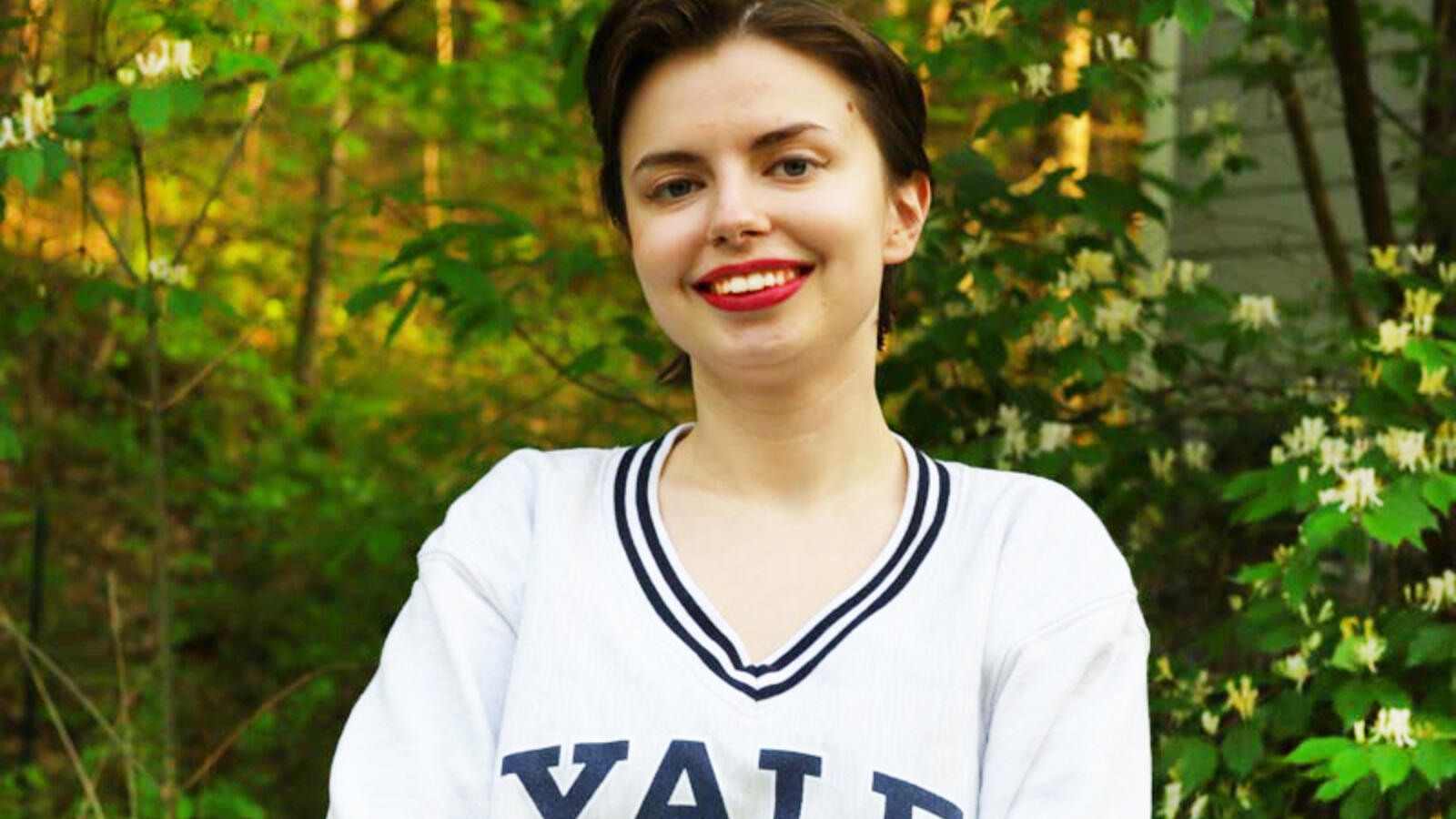Robin Happel is a recent alumna of the Yale School of the Environment, finishing a Masters in Environmental Management this past December. Currently, she works with the United Nations as a dual degree student with the Elisabeth Haub School of Law. She has previously worked with the Carnegie Council, Divest Invest Protect, the UN Environment Programme's Major Group of Children and Youth, the Yale Center for Environmental Law and Policy, the Yale Law, Ethics & Animals Program, and other environmental NGOs and non-profits. Before attending Yale, she served as an expert reviewer for the AR6 and a Global Goals Ambassador for Climate Action for the UN Association.
In this Q&A as one of the YAA's new Eli Ambassadors, Robin discusses how Yale has empowered her to make progress in addressing climate change, overcoming imposter syndrome, and how our idea of conventional wisdom must adapt with our evolving culture.
Why Yale?
As much as I love Gilmore Girls, the real reason I chose Yale is to pursue environmental justice work. I’m originally from east Tennessee, near the Smoky Mountains where Dolly Parton is from, and I’m immensely grateful to Yale for the support I’ve received to be able to work with Appalachian Mountain Advocates, as well as other pro bono work. I’m also part of a network of law students and attorneys — led by Pacific Islands Students Fighting Climate Change — seeking an advisory opinion from the International Court of Justice on climate change and human rights. This campaign in particular has been an amazing journey with other students at Yale, and really all around the world. Yale has the resources to provide so much more support to people on the frontlines of climate change and other injustices, and it’s really encouraging to see more engagement on those issues in recent years.
What is your most enduring memory of your time at Yale?
I loved volunteering with the Urban Resources Institute planting trees in local parks, and several community dinners with Sanctuary Kitchen are also really special memories. New Haven reminds me a lot in some ways of the blue collar neighborhood I’m from, and so much of what makes the school special is really the local community. And, of course, any event with Handsome Dan is always memorable!
If you could relive your time at Yale, what would you do differently?
As a joint law student, even after surviving my first year (and the pandemic!) my courses at Yale Law really intimidated me. I would tell myself to have less imposter syndrome, and that everything will be fine. I'm so glad I pushed myself to overcome my self-doubt, because my time at Yale was worth it. Being able to choose between classes at two separate law schools is really unique, and the possibility to be the first lawyer in my family is also an amazing feeling.
What would you do exactly the same?
I’m really fortunate to have support from both Haub Law and Yale Law to pursue public interest work, and it’s been really meaningful to work with environmental and civil rights non-profits throughout law school. Sticking with a public interest pathway can be difficult, but being creative and choosing a program that would cover more of my costs during law school has given me a lot of freedom. I’ve gotten a number of my past jobs by cold emailing attorneys I admire, and also written grant applications for legal non-profits that couldn’t afford to hire a law student otherwise. Although it’s difficult at times, I’m glad I pursued a slightly more unconventional path.
What is your favorite place in New Haven, past or present?
The water lilies pond by the School of the Environment around late summer — so peaceful!





